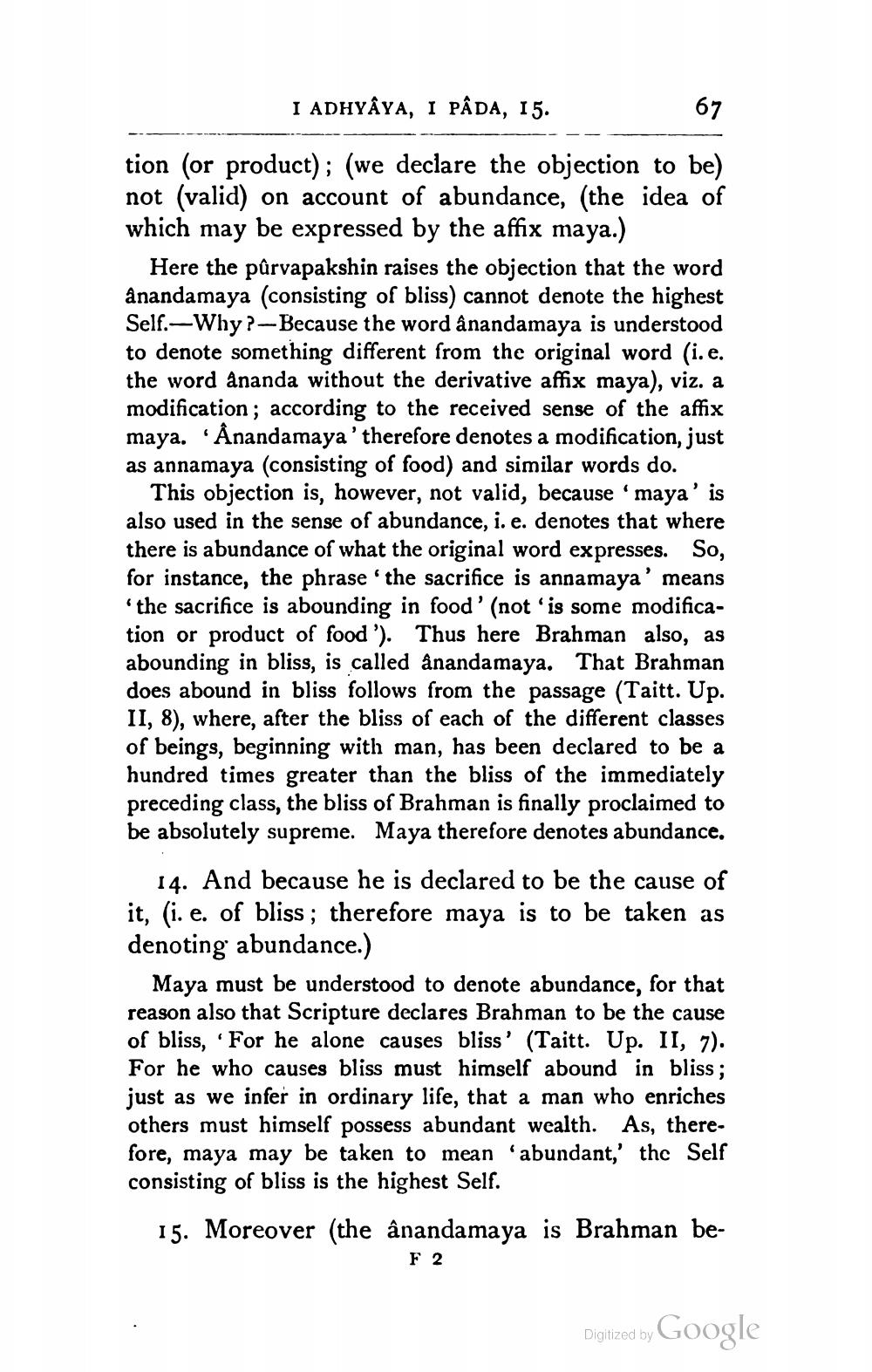________________
I ADHYÂYA, I PÂDA, 15.
67
tion (or product); (we declare the objection to be) not (valid) on account of abundance, (the idea of which may be expressed by the affix maya.)
Here the pûrvapakshin raises the objection that the word anandamaya (consisting of bliss) cannot denote the highest Self.—Why? Because the word anandamaya is understood to denote something different from the original word (i.e. the word ananda without the derivative affix maya), viz. a modification; according to the received sense of the affix maya. Anandamaya'therefore denotes a modification, just as annamaya (consisting of food) and similar words do.
This objection is, however, not valid, because 'maya' is also used in the sense of abundance, i. e. denotes that where there is abundance of what the original word expresses. So, for instance, the phrase 'the sacrifice is annamaya' means 'the sacrifice is abounding in food' (not'is some modification or product of food '). Thus here Brahman also. as abounding in bliss, is called anandamaya. That Brahman does abound in bliss follows from the passage (Taitt. Up. II, 8), where, after the bliss of each of the different classes of beings, beginning with man, has been declared to be a hundred times greater than the bliss of the immediately preceding class, the bliss of Brahman is finally proclaimed to be absolutely supreme. Maya therefore denotes abundance.
14. And because he is declared to be the cause of it. (i. e. of bliss; therefore maya is to be taken as denoting abundance.)
Maya must be understood to denote abundance, for that reason also that Scripture declares Brahman to be the cause of bliss, 'For he alone causes bliss' (Taitt. Up. II, 7). For he who causes bliss must himself abound in bliss; just as we infer in ordinary life, that a man who enriches others must himself possess abundant wealth. As, there. fore, maya may be taken to mean abundant,' thc Self consisting of bliss is the highest Self. 15. Moreover (the ânandamaya is Brahman be
F 2
Digitized by
Digized by Google




